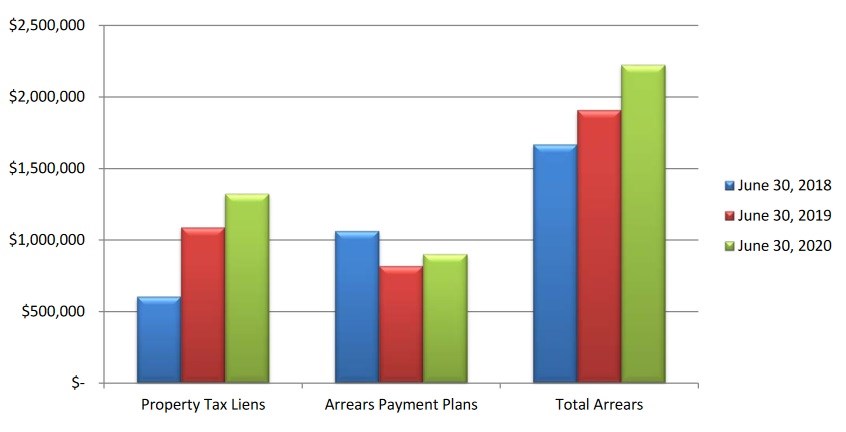Property tax arrears and tax liens against properties have both increased by triple digits during the last few years, which concerns one member of city council.
City administration provided a report of the City of Moose Jaw’s finances for the second quarter of this year during the most recent regular council meeting. Included in the report was a summary of property tax arrears and property taxes receivables up to June 30.
At the end of June, there was $2.25 million in tax arrears owing to city hall. In comparison, there was $1.9 million owing at the end of June 2019 and $1.66 million owing at the end of June 2018. This is an increase of roughly 33 per cent during the last three years.
Although this report shows tax arrears up to the end of June and not the end of the year, it still indicates a disturbing trend that should be highlighted, Coun. Brian Swanson said.
There are two components to the statement of property tax arrears: payment plans and liens, he pointed out. There was $901,705 on payment plans at the end of June, compared to $1.06 million on a repayment plan at the end of June 2018.
What’s more noteworthy, though, is there is $1.32 million in tax liens registered against properties. Two years ago, that was $605,698, which represents an increase of 118 per cent in three years.
“To me, that is very alarming,” Swanson said.
The finance department’s second-quarter report shows that the total amount of municipal taxes collected by the end of this June was $27.4 million, of which, $2.22 million was tax arrears, Swanson continued. This is 8.1 per cent of all municipal taxes collected so far, which “is getting awfully close to 10 per cent.”
The report also shows that tax arrears were $839,846 by the end of June 2015, but increased to $2.25 million by the end of this past June, he remarked. That is an increase in tax arrears of 165 per cent during the last half-decade.
“When I read that (recently), the thing that popped into my head was we had a cast-iron tender come in under budget. Instead of doing the maximum amount, we started doing aesthetic improvements, which delayed opening those streets for those commercial businesses … ,” Swanson said. “I would suggest to you it just doesn’t add up.”
Council then voted unanimously to accept the second-quarter report for 2020.
The next regular council meeting is Monday, Aug. 24.




